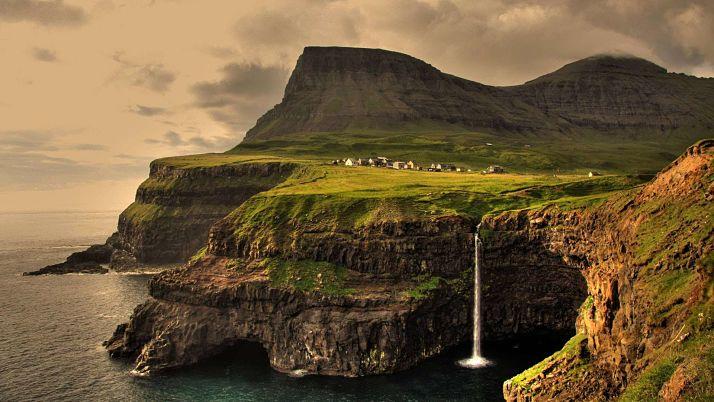What do you do when pollution in the food chain turns your way of life toxic? Astonishingly beautiful film in the making reveals the complexities of global ecological issues played out on the stark theatre of the Faroe Islands. Find out more hereOur story begins in the stunning setting of the Faroe Islands, an archipelago in the North Atlantic between Scotland and Iceland. Providing traditional local food for the table is a point of pride for many in the Faroes. Seabirds and pilot whales are eaten by the islanders as they have been since their Viking ancestors arrived in the islands around a thousand years ago. But many Faroese believe this way of life may soon end. Images of the blood-red bays and Faroese pilot whale slaughters have been widely publicised. It is a practice that many find controversial, but it has also been shrouded in myth and misinformation over the years. The Faroese argue that the whales are not endangered, that they are a sustainable local food source, but anti-whaling protestors disagree and arrive to try and stop the hunts. This film does not take sides on the whaling issue, and whatever your opinion on the pilot whale hunting, the reasons why this way of life may be ending very soon should concern us all. The oceans have become polluted with mercury, plastics, and manmade chemicals. Marine life is contaminated globally and this pristine far corner of the world is one of the first to notice the effects. A 30-year study of thousands of Faroese children has revealed that exposure to these levels of mercury and other pollutants such as Polychlorinates (PCBs) can cause permanent harm to those exposed. Children are especially vulnerable. These pollutants are also present in many species of fish that are eaten around the world. Prof. Pál Weihe, a Faroese medical doctor, has tested thousands of Faroese children throughout their lives to discover the effects of eating the pilot whales. *“The Faroes have a very strong argument to accuse the international community of polluting the sea, you have harmed our children. I believe our mission in the Faroes is to document the bill we had to pay, that we had to sacrifice our way of life to protect the health of our children.” __ - Prof. Pál Weihe It is not only the whales that are disappearing from many families' dinner tables. Seabirds also formed a part of the diet, but many species in the islands, including the much loved puffins, are disappearing due to changes in the local eco-system. Ornithologist and taxidermist, Jens-Kjeld Jensen has spent decades meticulously monitoring the catastrophic decline of the seabirds, and reporting on the large amount of plastic found in their stomachs. His message is simple, the human population is now so high in the world that we must take our responsibilities of stewardship seriously or risk the consequences.* Director Mike Day started this project after meeting Faroese sailors on two sloops in Stornaway in 2010 while filming The Guga Hunters of Ness (reviews here and here and the behind the scenes footage here). In 2011 Mike headed to the Faroe Islands and so began this next film... "I wanted to explore beyond the blood-red bays, and I found a story that affects us all. These faraway islands provide a stark warning. Our seas are polluted by industrial contaminants that can harm us all. There are solutions to these issues, and we hope this film highlights the consequences of living out of harmony with the natural world.” - Director Mike Day
Please help this important film get made!




